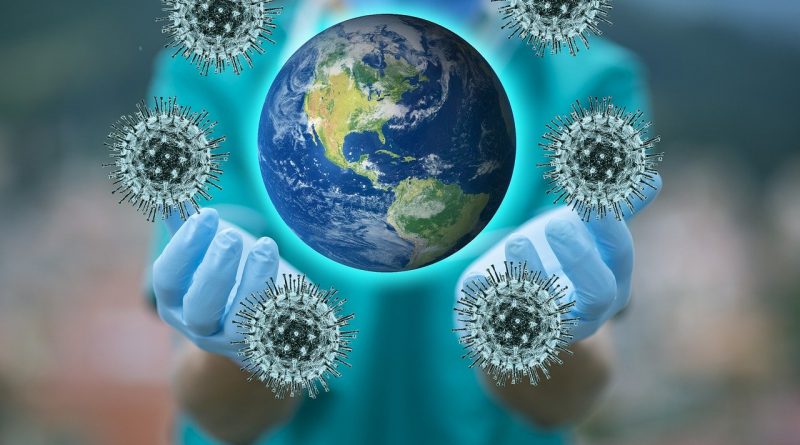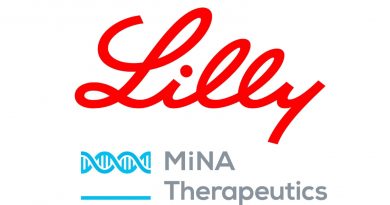AstraZeneca reaches $750m agreement with CEPI for Oxford COVID-19 vaccine
British pharmaceutical company AstraZeneca has reached a landmark $750 million agreement with Coalition for Epidemic Preparedness Innovation (CEPI) and the Vaccine Alliance of Gavi to support the manufacturing and distribution of 300 million doses of the potential Oxford University COVID-19 vaccine. The UK drugmaker has also signed a licencing deal with the Serum Institute of India (SII) for 1 billion doses of the Oxford vaccine.
The agreements with CEPI and Gavi and SII will enable AstraZeneca to provide wide and global access to the University of Oxford COVID-19 vaccine, as well as to bring the vaccine to low and middle-income countries and beyond. Global supply capacity is said to exceed two billion doses.
$750m to bolster vaccine production
The $750 million contract agreement was signed on 4th June 2020 between CEPI, Gavi and AsraZeneca, the company announced, to bolster the production, and distribution of 300 million doses of vaccine, with supply commencing by the end of the year. Moreover, AstraZeneca has reached a licencing agreement with SII to process and provide low and middle-income countries, with one billion doses and is dedicated to delivering 400 million by the end of 2020.
Global access to the Oxford COVID-19 vaccine
Together, the agreements set out the latest commitments to allow global access to the vaccine, including to low and middle-income countries, even further than the recent collaboration between AstraZeneca, United Kingdom and the United States. The company is creating a number of supply chains in parallel throughout the world to support global access without profit during the pandemic and to date has secured a production capacity of two billion.
The partnership with CEPI and Gavi is also the first early business pledge through the Exposure to COVID-19 Software (ACT) Accelerator, a strategic initiative co-chaired by the Bill & Melinda Gates Foundation and the World Health Organisation (WHO). The method will work to ensure that vaccines are allocated and distributed fairly throughout the world, including in low and middle-income countries.
Pascal Soriot, Chief Executive Officer, AstraZeneca, said:
“We are working tirelessly to honour our commitment to ensure broad and equitable access to Oxford’s vaccine across the globe and at no profit. Today marks an important step in helping us supply hundreds of millions of people around the world, including to those in countries with the lowest means. I am deeply grateful for everyone’s commitment to this cause and for their work in bringing this together in such a short time.”
Dr Seth Berkley, Chief Executive Officer, Gavi, said:
“Today we have seen tremendous willingness from donor governments to support equitable access, particularly to developing countries – and it is incredibly heartening to see the private sector join in this effort. We encourage other vaccine manufacturers to work with us towards the shared global goal of finding solutions for this unprecedented pandemic.”
Adar Poonawalla, Chief Executive Officer, SII, said:
“Serum Institute of India is delighted to partner with AstraZeneca in bringing this vaccine to India as well as low and middle-income countries. Over the past 50 years SII has built significant capability in vaccine manufacturing and supply globally. We will work closely with AstraZeneca to ensure fair and equitable distribution of the vaccine in these countries.”
The AstraZeneca and Oxford University agreement
AstraZeneca has recently agreed to deliver 400 million doses to the United States and the United Kingdom after reaching a licencing agreement with Oxford University for its recombinant adenovirus vaccine, formerly known as ChAdOx1 nCoV-19 presently known as AZD1222.
Oxford University confirmed the launch of a Phase II / III AZD1222 study comprising nearly 10,000 adult participants. Many late-stage studies are expected to commence in a variety of countries. AstraZeneca recognises that the vaccine may not work but is devoted to accelerating the clinical project and ramping up manufacturing.
The comprehensive pandemic response of the company also includes the enhanced concentration of AstraZeneca’s global ongoing research to discover novel coronavirus-neutralizing antibodies to treat and prevent the spread of COVID-19 disease, with the objective of accomplishing clinical trials in the next three to five months. Moreover, the company has rapidly switched to testing new and existing medicines.
The University of Oxford COVID-19 vaccine AZD1222
CHADOx1 nCoV-19, now known as AZD1222, was developed by the Jenner Institute of Oxford University, working with the Oxford Vaccine Group. It uses a replication-deficient chimpanzee viral vector based on a weakened version of the common cold (adenovirus) virus that triggers infection in chimpanzees and contains the SARS-CoV-2 spike protein genetic material. The surface spike protein generated upon vaccination is making it possible for the immune system to combat COVID-19 if it subsequently infects the body.
The recombinant adenovirus vector (ChAdOx1) was selected to induce a decent single-dose immune response without replicating and not inflicting ongoing infection in the vaccinated participant. Vaccines produced from ChAdOx1 virus have been administered to more than 320 individuals to date and have been seen to be safe and well-tolerated, but still, it may cause transient side effects such as temperature, influenza-like symptoms, headache or a sore arm.
About AstraZeneca
AstraZeneca (LSE/STO/NYSE: AZN) is a worldwide, science-led biopharmaceutical company that centers on engineering, advancement and commercialisation of prescription medications, essentially for the treatment of disease in medical fields such as – Oncology, Cardiovascular, Renal & Metabolism, and Respiratory & Immunology. Headquartered in Cambridge, UK, AstraZeneca operates in more than 100 countries and millions of patients worldwide are using its revolutionary medicines.
To learn more, please visit astrazeneca.com




